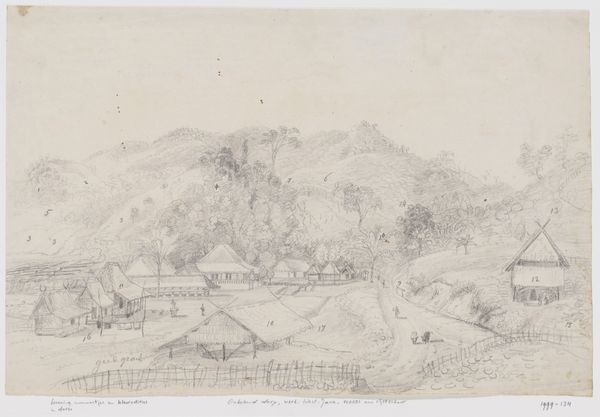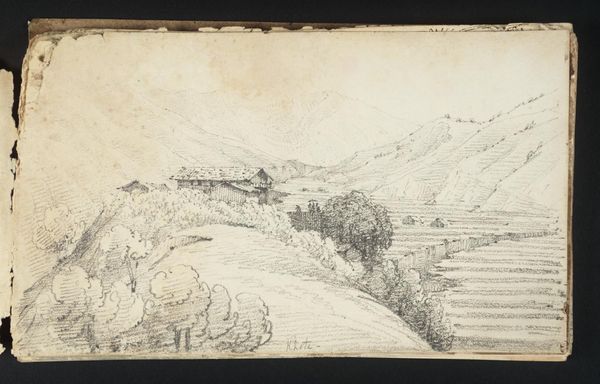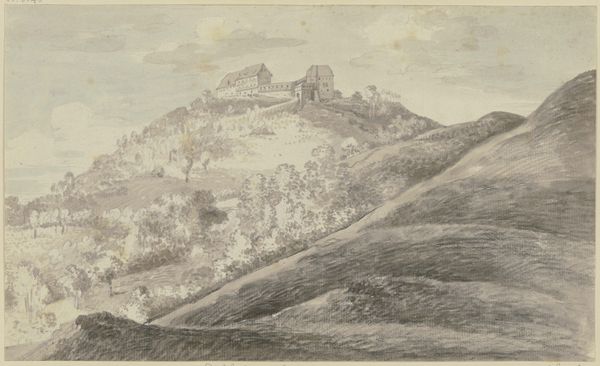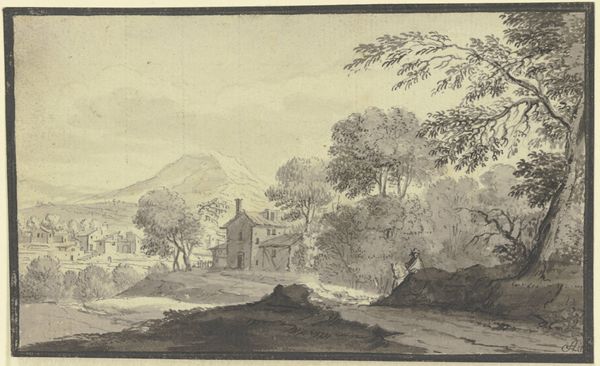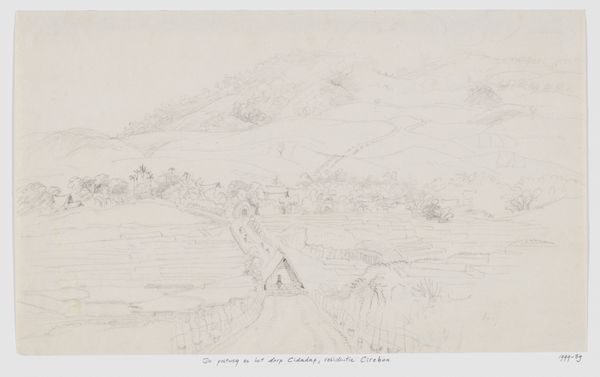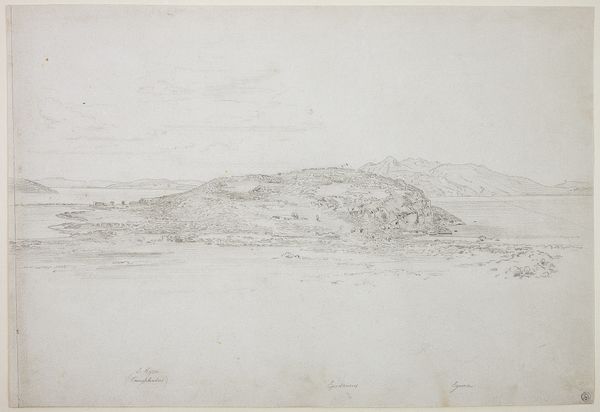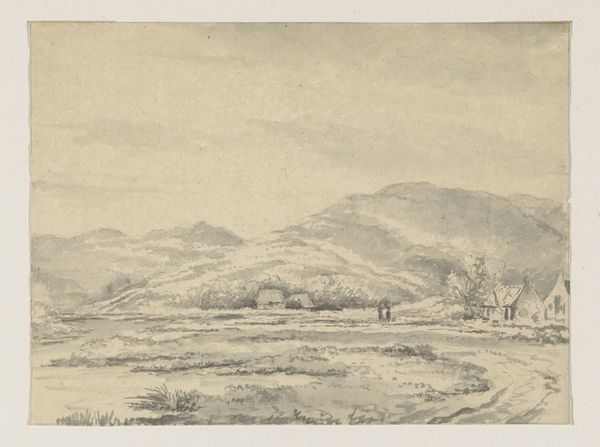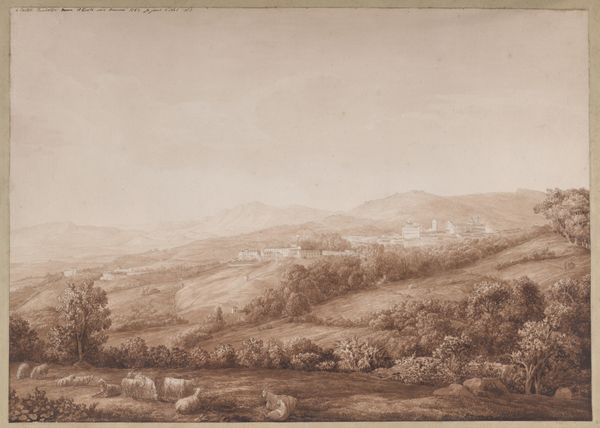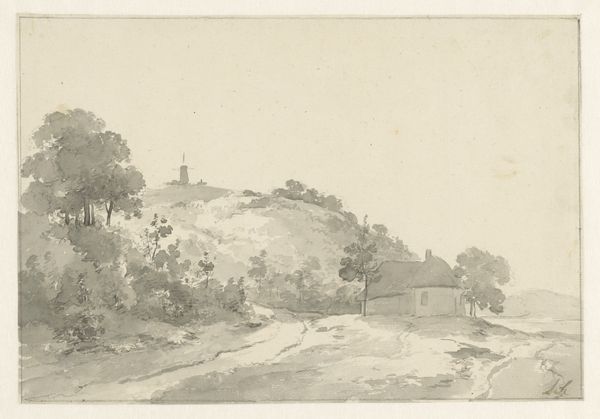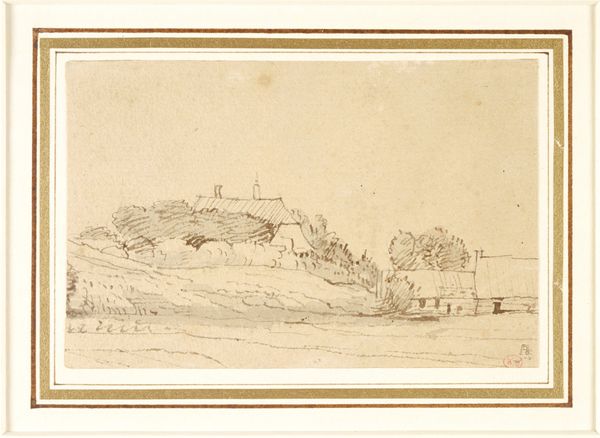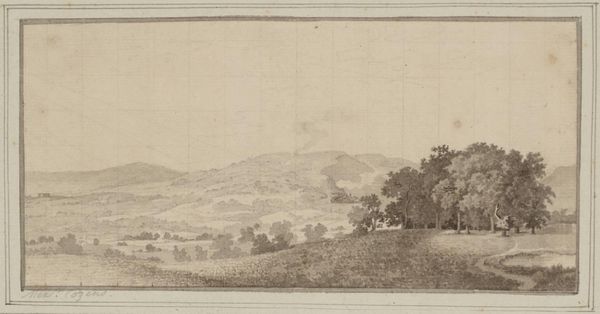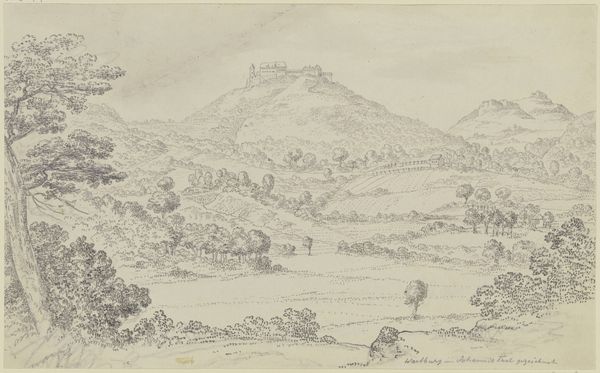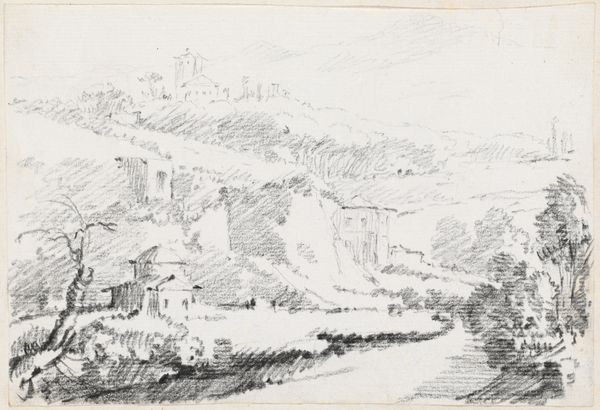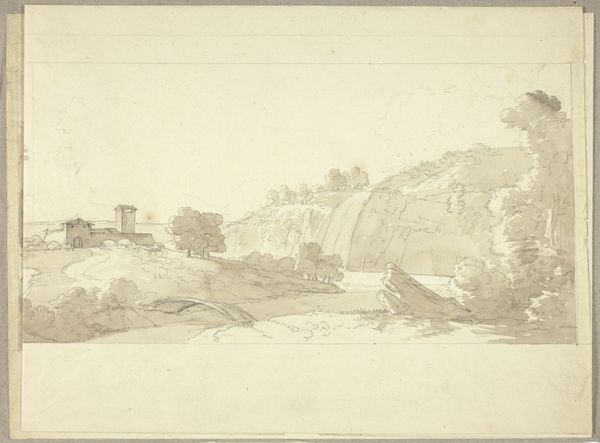
Dimensions: 7 1/4 x 12 in. (18.4 x 30.5 cm)
Copyright: Public Domain
Curator: There's a gentle hush about this scene; it's almost dreamlike. Editor: Well, let's set the stage, then. What you're seeing is "Farm Buildings with Water Mill," a graphite drawing made with pencil on paper. The artist is Jean-Honoré Fragonard, and while the exact date of creation is debated, it's situated between 1745 and 1806. It's currently housed here at the Metropolitan Museum of Art. Curator: The pencil strokes feel so light, creating this soft, almost nostalgic atmosphere. It evokes the feelings of the fading aristocratic indulgence just before the storm of the Revolution. Notice how the mill, almost a ruin, blends so organically with the hills? Editor: Absolutely. The piece exists in a fascinating social context; Fragonard, known for his Rococo frivolity, here almost seems to prefigure the Romantic movement's interest in the sublime, finding beauty in nature's quiet grandeur and everyday rural scenes. You see him shifting from explicit societal critiques to something much softer and, I daresay, universally accessible. Curator: And within that softness lies a deeper psychological landscape. Water mills have always been about cycles: the turning of the wheel, the grinding of grain, life's persistent rhythms. There’s a subdued melancholy about the acceptance of it all. Even the mountain receding in the background feels less a display of power and more like an acceptance of an immense, immutable presence. Editor: I wonder, too, about Fragonard's intention for this piece within the changing artistic landscape. This sketch surely wasn't made for the kind of official exhibition we consider prestigious today. It was something made for practice, contemplation, maybe for the private enjoyment of a patron or fellow artist. The artwork has been shaped by our contemporary idea of an exhibition piece by museums and gallery spaces. Curator: A fascinating idea. This seemingly simple sketch actually holds within it multiple layers of meaning – personal reflection, pre-Romantic sentiment, societal context – revealed to us over the course of time. Editor: A testament to art's continuing power. Even something as unassuming as a pencil drawing can unlock broader, evolving dialogues about human experience.
Comments
No comments
Be the first to comment and join the conversation on the ultimate creative platform.
